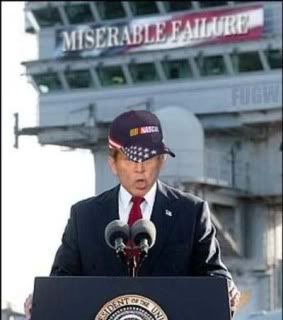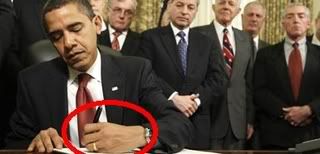It's time to
invest in jobs.
It's really not that hard.
Paul and
Brad and their assorted brethren try to dumb it down for the masses, but too often eyes glaze over at even the mention of marginal rates and unemployment extensions, austerity versus stimulus, deficits and debt, stocks, bonds, markets and credit-default-swaps.
The basics are always the same, whether you're a Wall Street baron or contemplating a change in your IRA or 401k.
Buy low, sell high. That goes for investments in real estate, a stamp collection or baseball cards.
My economics professors tried their damnest to confuse and befuddle me with their charts and graphs and technical jargon bordering on a foreign language, but even a child has an instinctive understanding of the basic principle that
scarcity leads to an increase in price.
Sandy Koufax baseball jerseys are a rarity and thus you can expect to auction one off for a mint. However, he only pitched one perfect game, and if you're planning on bidding on that unique item - the very uniform he wore on September 9, 1965, plan on outbidding the Sultan of Dubai.
The converse is naturally true.
Surplus equals a lower price. It there's a glut on the market, like what happens when you can poke a hole any old place in the ground and black gold gushers up to the surface (and you manage to collect it instead of just pouring it into the sea), the price goes down.
A lot of factors go into deflating prices from surplus. Competition among sellers tends to bid a price lower. Cost savings from mass production permits an increase in profit, which can be cut without hurting owners/shareholders in order to gain greater market share. (Okay, this is starting to sound like the jargon I used to hate, but bear with me.)
Economies of Scale also affect prices, where you can afford to buy in bulk at a reduced wholesale cost, divvy the goods up into smaller portions and sell them for more than it cost you per unit originally. Wall Mart does this on a mammoth scale, but so does your local pot dealer who buys two pound bricks and sells you a couple of joints for the Bon Jovi concert.
In fact, economies of scale, as well as the notion that a surplus won't last forever leading to price inflation in the market over time, compels an investor to buy items that can be had at surplus pricing before the market reacts. Some deals won't last forever.
Grumbling that that things just won't stay the way they are,
Alan Greenspan misses the point, not surpirsingly since from his pampered ivory tower his self-denial and whacked-out priorities always ignore the actual lives in the balance when he ticks off unemployment statistics. He's right, though. Interest rates will not stay as low as they are, and credit capacity (Wall Street Speak for cash available to loan but sitting in a vault instead) will not be as great as it is forever. But neither will there be a perpetual labor force glut with one in ten of your neighbors looking for work. At least I hope not.
Right now we have a unique opportunity, a one of a kind, Sandy Koufax jersey moment when it comes to launching this nation into the future or flushing it all down the toilet -- missing a once a generation opportunity. Despite the massive debt rolled up over the post-Reagan era, our government still - miraculously - has excess money it can borrow cheap.
We can invest in people. We can invest in jobs. We can invest in clean energy and infrastructure. We have a beat up labor force willing and able to work for less, and we can borrow now to pay them knowing they'll pay back the debt their employment creates with interests if we put them to work in things that will make this nation more efficient, more competitive, more self-sufficient in the future.
Build the
Supertrains, the center lane for I-95 all the way from Maine to Miami, the giant windmill and solar farms, hell, even the nuke plants as long as we spend the gazzillion dollars needed to make 'em safe. They promised us
flying cars, lets build 'em, and places to park them too. Tired of your smart phone cutting out as you travel through dead zones in the net? We can wire the whole nation for high speed internet access, wirelessly. It won't be done unless AT&T can figure out how to do it at a profit, or We The People decide it's worth the investment. It'll never be cheaper to do than right now.
Lincoln built the transcontinental railways during the Civil Frickin' War people -- so don't talk to me about this not being the right time for thinking big. It was downright bleak during World War I, but we emerged as an
economic powerhouse after massive investments in mining and factories, bringing women and African Americans out of the kitchens and farms and creating a modern workforce. FDR pushed through the
Alaska Highway during WWII. Ike built the
Interstate Highway system during the hottest part of the Cold War and we paid for it by borrowing and taxing millionaires 80%.
We made this country great through deficits that invested in infrastructure and people, not hand-outs to corporate moguls who we taxed, taxed, taxed instead.
We are, again, a
sleeping giant that has been napping for decades. We CAN do this. We can if we get off our fat, pampered asses and get to work, insisting our leaders find something for us to do and pay us decently for doing it, ironically, with our own money.
See, economics is simple. There's a lot of people who can do a lot of stuff it would have cost too much to do before Bush wreaked the country and put so many workers on the streets. Right now, you can be bought cheap, cuz there's a lot of you who'll do those jobs Americans didn't want to do. We need your government to invest in you while you're cheap.

 This bugs me.
This bugs me. Exposing the lack of compassion by conservatives and
debunking right wing hypocrisy at every opportunity.
Exposing the lack of compassion by conservatives and
debunking right wing hypocrisy at every opportunity.


























 Subscribe via Email
Subscribe via Email